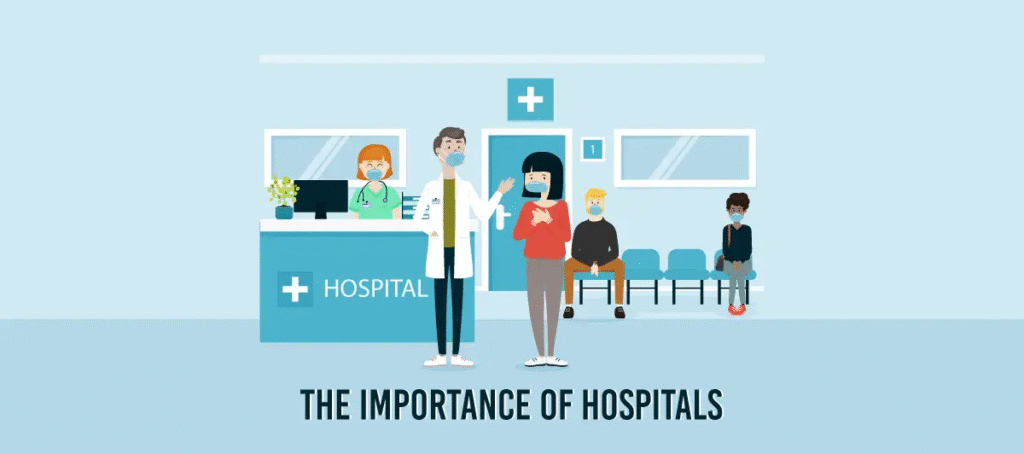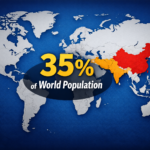*****************************************************************************************************
Table of Contents
1. Introduction
Health care is essential to human survival and societal progress. Every nation, community, and individual relies on healthcare to maintain health, cure diseases, and improve quality of life. Despite its universal necessity, healthcare is a complex and evolving concept. In this blog, we will explore the definition, components, challenges, and future of healthcare in an in-depth, SEO-optimized manner.
*****************************************************************************************************
2. What is Healthcare? Definition Explained
Health care refers to the organized provision of medical care and services aimed at maintaining or improving health. It includes diagnosis, treatment, prevention, and management of illnesses, injuries, and other physical and mental impairments.
Key Aspects:
- Medical services (diagnosis, surgery, therapy)
- Preventive care (vaccination, screenings)
- Health education (awareness, lifestyle guidance)
- Rehabilitation and palliative care
Healthcare encompasses a wide range of services provided by professionals including doctors, nurses, pharmacists, therapists, and public health workers.

——————————————————————————————
3. History and Evolution of Healthcare
The history of health care dates back to ancient civilizations. Early forms of medicine were deeply rooted in spiritual and herbal traditions. Over centuries, scientific advancements transformed healthcare from basic healing practices to highly sophisticated medical systems.
Milestones:
- Ancient Egypt and Ayurveda
- Hippocratic medicine in Greece
- Germ theory and antibiotics
- Development of public health systems
- Digital transformation and AI
4. Core Goals of Healthcare
Health care systems globally aim to:
- Promote and protect health
- Prevent diseases and injuries
- Diagnose and treat illnesses
- Enhance quality of life
- Ensure equitable access to services
A robust healthcare system supports human capital development and societal well-being.
5. Major Components of Health care Systems
Health care is a multifaceted system composed of:
- Service delivery (hospitals, clinics)
- Health care workforce (doctors, nurses, technicians)
- Health information systems
- Medicines and technologies
- Health financing (insurance, subsidies)
- Leadership and governance
Each component must function efficiently for optimal healthcare outcomes.

*****************************************************************************************************
6. Types of Health care Services
a. Primary Health care
First point of contact for patients (e.g., general physicians, family doctors).
b. Secondary Health care
Specialized care typically accessed via referrals (e.g., cardiologists, dermatologists).
c. Tertiary Health care
Highly specialized medical care (e.g., cancer centers, neurosurgery units).
d. Quaternary Health care
Advanced experimental and uncommon procedures (e.g., rare transplant surgeries).
7. Levels of Health care
- Individual Level: Self-care, wellness, lifestyle.
- Community Level: Public health programs.
- National Level: Policies, insurance schemes.
- Global Level: WHO, global disease surveillance.
8. Key Healthcare Providers
Health care providers include:
- Hospitals and clinics (public and private)
- General practitioners and specialists
- Nurses and allied health workers
- NGOs and community health volunteers
- Telehealth platforms and digital providers
9. Importance of Healthcare in Society
- Prevents and cures illnesses
- Increases life expectancy
- Improves productivity
- Reduces health disparities
- Promotes societal stability
Investing in health care results in higher economic and human development.

*****************************************************************************************************
10. Global Health care Systems: A Comparison
Beveridge Model (UK, Spain)
Government-funded and provided.
Bismarck Model (Germany, Japan)
Insurance-based, employer-employee funded.
National Health Insurance Model (Canada)
Government-funded with private providers.
Out-of-Pocket Model (India, Africa)
Individuals pay directly for services.
11. Challenges Facing Modern Healthcare
- High costs of care
- Inequitable access in rural areas
- Aging populations
- Chronic diseases
- Shortage of health care workers
- Mental health stigma
- Digital divide
12. Role of Technology in Healthcare
Technological innovation is revolutionizing healthcare:
- AI for diagnostics and predictions
- Robotics in surgery
- Wearables and IoT devices
- EHR and data analytics
- 3D printing of organs and devices

13. Public Policy and Health care Governance
Effective policies ensure:
- Equitable access
- Cost control
- Quality standards
- Health education
- Emergency preparedness
Examples include India’s Ayushman Bharat and the Affordable Care Act in the USA.
14. Preventive vs Curative Health care
Preventive:
- Vaccination
- Screening
- Public health campaigns
Curative:
- Treatment post-diagnosis
- Surgeries and medication
Balanced investment in both ensures sustainability.
15. Health Insurance and Financing Models
Types:
- Government-funded (Medicare, Ayushman Bharat)
- Employer-based insurance
- Private insurance plans
Importance:
- Financial protection
- Promotes healthcare access
- Reduces out-of-pocket expenditure

*****************************************************************************************************
16. Rise of Telemedicine and Digital Health
Benefits:
- Remote consultations
- Real-time monitoring
- Rural accessibility
- Cost reduction
Challenges:
- Internet connectivity
- Digital literacy
17. Universal Health Coverage (UHC) and Sustainable Development Goals
UHC aims to ensure that all people receive the health services they need without suffering financial hardship. It is a cornerstone of SDG 3 (Health and Well-being).
18. Strategies to Improve Health care Access
- Strengthening primary health care
- Digital health expansion
- Mobile health units
- Incentives for rural postings
- Public-private partnerships
19. Economic Impact of Health care
- Healthy workforce = economic growth
- Reduces disease burden
- Encourages foreign investment
- Promotes tourism (medical tourism)
20. Conclusion
Health care is not just a service; it’s a fundamental human right and a pillar of development. As we face new health threats and technological disruptions, a robust, inclusive, and innovative healthcare system is more important than ever. From policymakers to patients, every stakeholder must collaborate to build a healthier future.
****************************************************************************************************
https://pram123.com/what-is-healthcare-a-complete-guide-to-definition/
https://www.ncbi.nlm.nih.gov/books/NBK144006/
*****************************************************************************************************











